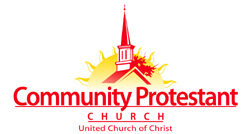The Pastor’s Study – March 2022
by: Rev. Alex Molozaiy
It’s exciting to see the positivity rate of COVID infections shrink as the days get warmer and longer. As our prospects improve, we are mindful of those whose lives have been overturned by a senseless and unprovoked war in Ukraine. We take courage from the example of the brave citizens refusing to relinquish their freedom through both unarmed protest by civilians and armed military resistance where necessary. As a result, our inconveniences and petty squabbles have undergone what I hope will become a larger reality check – that we cannot take the future survival of the institutions we value for granted. They must be examined for weak spots, parts that are functioning given their due maintenance, and parts that are not either adapted, replaced, or deleted. I sincerely hope so. I pray that the past two years have caused us to reorder our priorities in a way that is more in line with the God of shalom.
While it’s an exciting and hopeful time in many ways, I have made little secret of the fact that I am exhausted. As you may recall from my write-up for the 2021 Annual Report, I mentioned that I am now two years overdue for the second scheduled sabbatical of my tenure as CPC’s Pastor and Teacher. Many of you were here when I last went on sabbatical in June, July, and August of 2013. For those three months CPC was in the capable hands of Pastor Ruth while I took time away to do some of that very same maintenance on a personal and professional level.
The essence of sabbatical is rooted in the Hebrew word shabbat, to which the Bible relates three practices:
- Rest—Rooted in God’s rest after the six days of creation in Genesis 2. “God rested on the seventh day from all the work that he had done.” The weekly observance of the Sabbath was to nourish the body, mind, and soul of all creatures.
- Land laying fallow—Leviticus tells us that every seventh year even the land (for the most part an inanimate object) needed to recover if it was to bear fruit abundantly. This is, by the way, an early form of crop rotation.
- Finally, the Jubilee Year—Leviticus further prescribes an entire year out of every fifty where debts were canceled and production halted. This allowed strained relationships to be restored.
These three weren’t just good ideas, they were the law. The Sabbath commandment gets more explanation than any other of the Ten Commandments, probably because God knew that our tendency is to misunderstand or misconstrue it. The biblical Sabbath is meant to be, quite simply, a means of restoration.
In the next few weeks, I will be working with Moderator Jen Popowitch to establish a Sabbatical Committee, overseen by the Church Council, to produce a document that will explain more fully both my plans for ‘scheduled maintenance’ as well as what will be the mutual agreement terms between the congregation and the person(s) who will serve as my temporary replacement. Because our situation is quite different than that of nine years ago, these expectations could look considerably different than our arrangement with Pastor Ruth last time, but there will be some non-negotiable base expectations like planning and leading weekly worship, on-call availability for member needs, and a modicum of engagement with church business and meetings as appropriate.
My plans are looking to the months of July through September as the most likely timeline, but this is but one consideration we will be making and communicating over the course of the months ahead. For now, welcome back!

